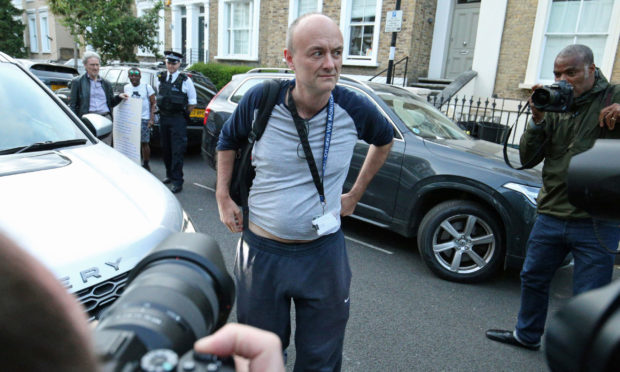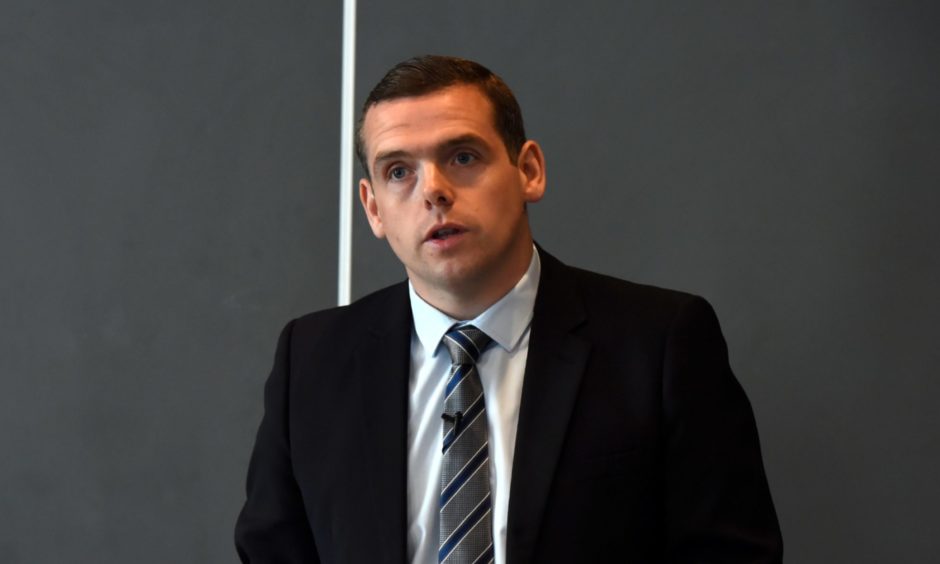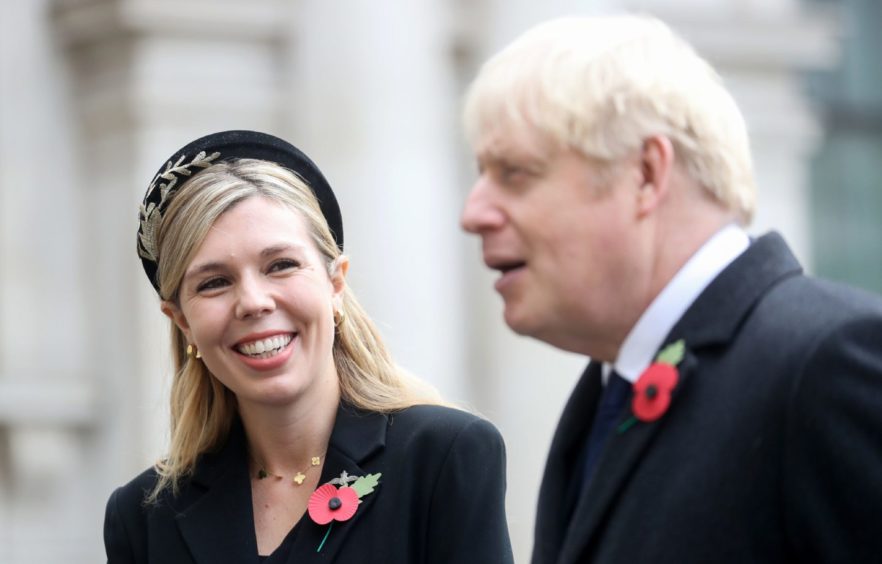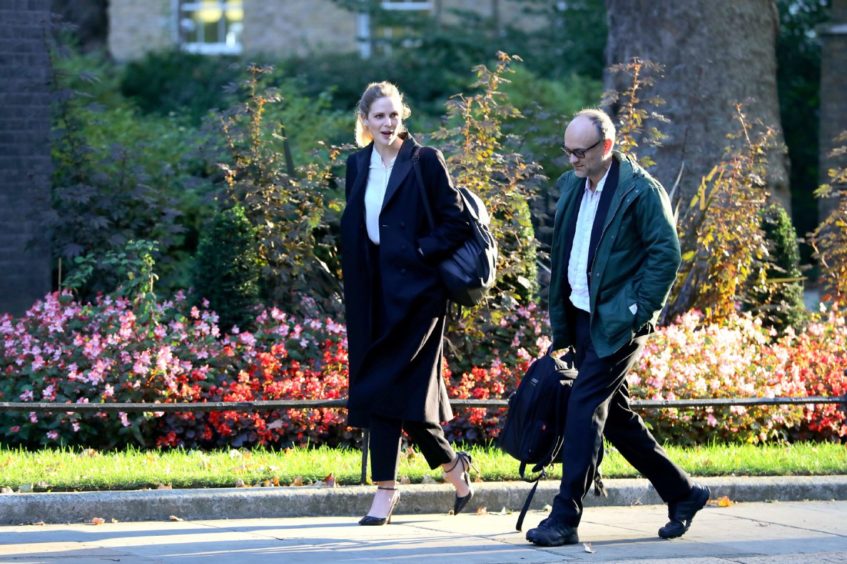Boris Johnson’s chief adviser, Dominic Cummings, is expected to leave his job by the end of the year, in the wake of reports of a bitter power struggle between some of the prime minister’s closest allies.
The controversial aide, who was seen by many as a central figure in securing 2016’s Brexit vote, said that “rumours of me threatening to resign are invented”, after suggestions he was preparing to quit alongside communications director Lee Cain.
But he said his “position hasn’t changed since my January blog” when he wrote that he hoped to make himself “largely redundant” by the end of 2020.
Cabinet minister Grant Shapps appeared to confirm the departure when he told BBC Radio 4’s Today programme on Friday that Mr Cummings “will be missed” but he was not surprised because advisers “come and go”.
Mr Shapps said the prime minister’s key adviser was “ready to move on”, with the close of the Brexit transition period looming at the end of the year.
Mr Cummings’ presence in Downing Street has been a contentious issue since he was first appointed but he became a household name in May following revelations about a trip to the north of England in the midst of lockdown.
Controversy at the heart of government
The aide travelled 260 miles to Durham with his family to visit a property owned by his parents, followed by a further visit on his wife’s birthday to Barnard Castle, all in apparent breach of lockdown rules.
This led to an extraordinary press conference in the Downing Street rose garden where he attempted to defend his own actions.
But it was too much for some within the party and led to the resignation of Scotland Office minister Douglas Ross, who is now leader of the Scottish Conservatives.
The visit, and Mr Cummings’ claim that he simply wanted to test his eyesight after recovering from coronavirus, attracted such attention that police complained it was undermining their efforts to enforce the regulations.
Conservative MPs have now urged No 10 to use the looming departure of Mr Cummings as an opportunity to restore the values of “respect, integrity and trust”.
Let’s move a little bit away from EastEnders and more to the West Wing.”
Conservative MP Tobias Ellwood
Highly publicised in-fighting led to the resignation on Wednesday of Mr Cain, with Mr Cummings said to be contemplating his own exit over the treatment of his political ally from the Brexit campaign – something the adviser has rejected.
The ‘beginning of the end for Dom’
The Telegraph reported an “associate” of Mr Cain as saying the communication chief’s departure was the “beginning of the end for Dom”.
Mr Cain had been offered the post of chief of staff but a backlash among Tories and the prime minister’s inner circle ultimately led him on Wednesday to announce his departure from No 10.
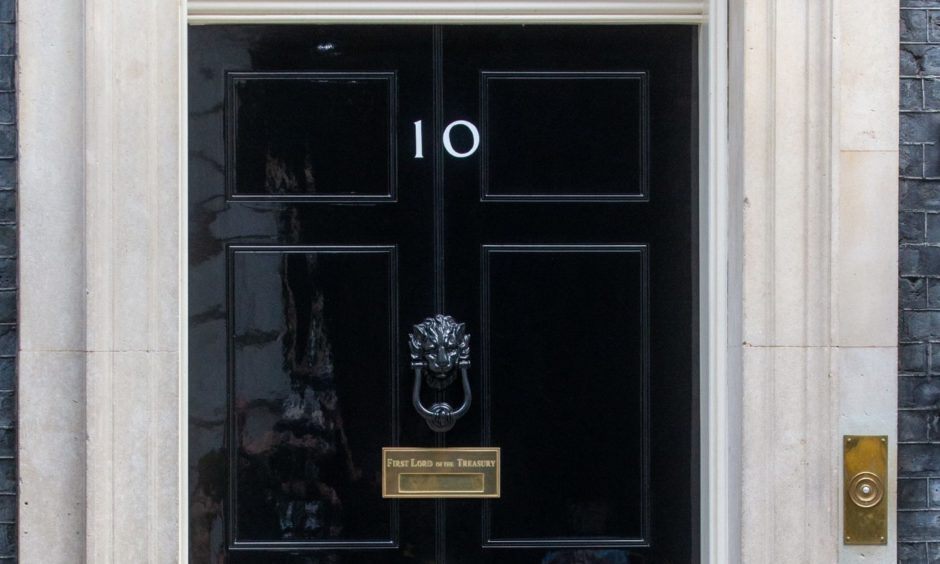
In his resignation statement, Mr Cain confirmed he had been offered a promotion to the key position of the prime minister’s chief of staff.
The move, which would have meant he was one of just a handful of people in No 10 with direct one-to-one access to Mr Johnson, was seen as entrenching the grip of the Vote Leave faction on Downing Street.
It ran into immediate resistance, with Mr Johnson’s fiancee, Carrie Symonds, who has clashed in the past with Mr Cummings, reportedly strongly opposed to the appointment.
Ms Symonds is a former Tory press chief who has served as a special adviser in previous governments. Allegra Stratton, the former broadcaster brought in to host televised No 10 news conferences from next year, was also said to have objected to the appointment.
The prime minister’s official spokesman, James Slack, who confirmed he would be replacing Mr Cain when he leaves in the new year, insisted that Mr Johnson is not being distracted from the national crisis by the row.
Mr Cummings was seen by many at the heart of government as playing a key role in delivering the Brexit vote in 2016 and securing a large majority last year.
But his abrasive manner and open contempt for MPs and officials meant he had no shortage of enemies across Westminster.
There was consternation among many when Mr Johnson became prime minister in July 2019 and chose Mr Cummings to head up his operation.
Whitehall was given an early taste of how he would operate when he sacked Sonia Khan, a special adviser to then-chancellor Sajid Javid, and had her marched out of Downing Street by an armed police officer for alleged leaks.
The Treasury has settled an employment tribunal claim with Ms Khan, with the government reportedly set to pay out a five-figure sum. It means Mr Cummings no longer faces the prospect of giving evidence in the case next month.
